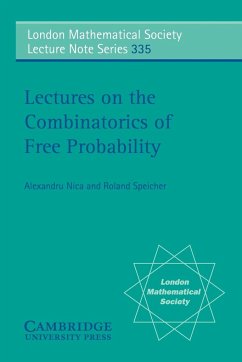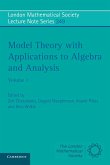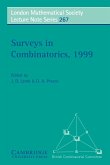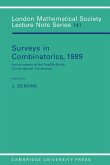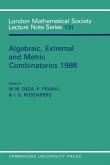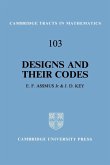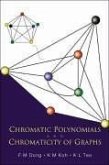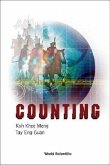A self-contained introduction to free probability theory suitable for an introductory graduate level course.
Free Probability Theory studies a special class of 'noncommutative'random variables, which appear in the context of operators on Hilbert spaces and in one of the large random matrices. Since its emergence in the 1980s, free probability has evolved into an established field of mathematics with strong connections to other mathematical areas, such as operator algebras, classical probability theory, random matrices, combinatorics, representation theory of symmetric groups. Free probability also connects to more applied scientific fields, such as wireless communication in electrical engineering. This book is the first to give a self-contained and comprehensive introduction to free probability theory which has its main focus on the combinatorial aspects. The volume is designed so that it can be used as a text for an introductory course (on an advanced undergraduate or beginning graduate level), and is also well-suited for the individual study of free probability.
Table of contents:
Part I. Basic Concepts: 1. Non-commutative probability spaces and distributions; 2. A case study of non-normal distribution; 3. C*-probability spaces; 4. Non-commutative joint distributions; 5. Definition and basic properties of free independence; 6. Free product of *-probability spaces; 7. Free product of C*-probability spaces; Part II. Cumulants: 8. Motivation: free central limit theorem; 9. Basic combinatorics I: non-crossing partitions; 10. Basic Combinatorics II: Möbius inversion; 11. Free cumulants: definition and basic properties; 12. Sums of free random variables; 13. More about limit theorems and infinitely divisible distributions; 14. Products of free random variables; 15. R-diagonal elements; Part III. Transforms and Models: 16. The R-transform; 17. The operation of boxed convolution; 18. More on the 1-dimensional boxed convolution; 19. The free commutator; 20. R-cyclic matrices; 21. The full Fock space model for the R-transform; 22. Gaussian Random Matrices; 23. Unitary Random Matrices; Notes and Comments; Bibliography; Index.
Free Probability Theory studies a special class of 'noncommutative'random variables, which appear in the context of operators on Hilbert spaces and in one of the large random matrices. Since its emergence in the 1980s, free probability has evolved into an established field of mathematics with strong connections to other mathematical areas, such as operator algebras, classical probability theory, random matrices, combinatorics, representation theory of symmetric groups. Free probability also connects to more applied scientific fields, such as wireless communication in electrical engineering. This book is the first to give a self-contained and comprehensive introduction to free probability theory which has its main focus on the combinatorial aspects. The volume is designed so that it can be used as a text for an introductory course (on an advanced undergraduate or beginning graduate level), and is also well-suited for the individual study of free probability.
Table of contents:
Part I. Basic Concepts: 1. Non-commutative probability spaces and distributions; 2. A case study of non-normal distribution; 3. C*-probability spaces; 4. Non-commutative joint distributions; 5. Definition and basic properties of free independence; 6. Free product of *-probability spaces; 7. Free product of C*-probability spaces; Part II. Cumulants: 8. Motivation: free central limit theorem; 9. Basic combinatorics I: non-crossing partitions; 10. Basic Combinatorics II: Möbius inversion; 11. Free cumulants: definition and basic properties; 12. Sums of free random variables; 13. More about limit theorems and infinitely divisible distributions; 14. Products of free random variables; 15. R-diagonal elements; Part III. Transforms and Models: 16. The R-transform; 17. The operation of boxed convolution; 18. More on the 1-dimensional boxed convolution; 19. The free commutator; 20. R-cyclic matrices; 21. The full Fock space model for the R-transform; 22. Gaussian Random Matrices; 23. Unitary Random Matrices; Notes and Comments; Bibliography; Index.

